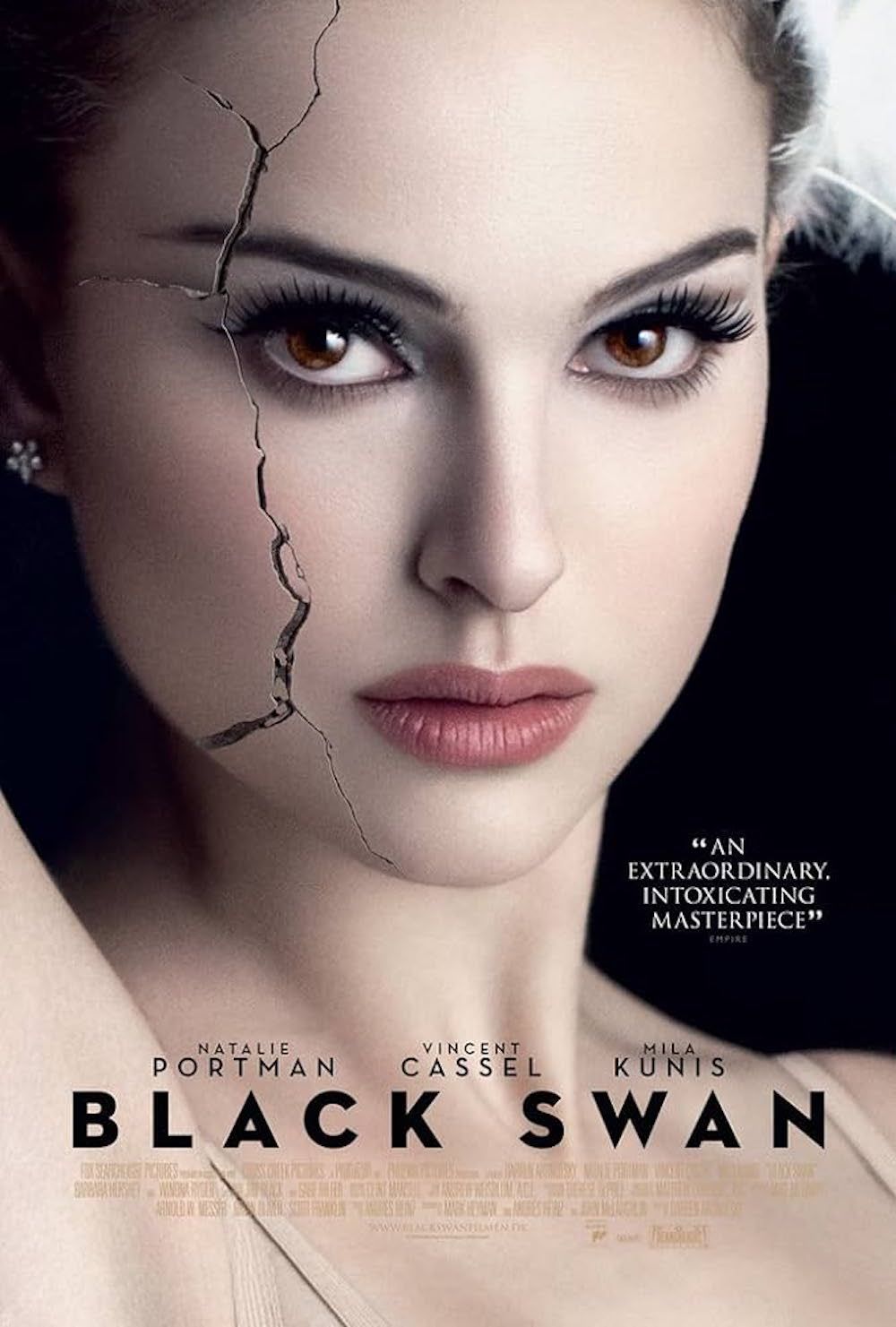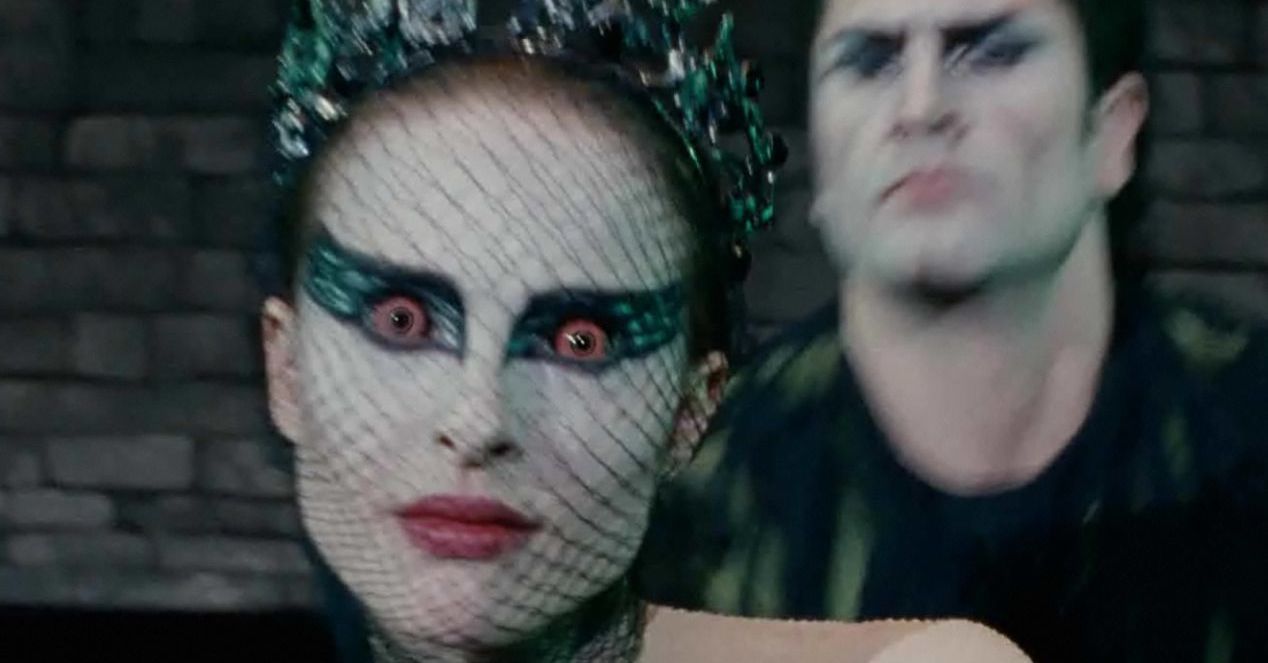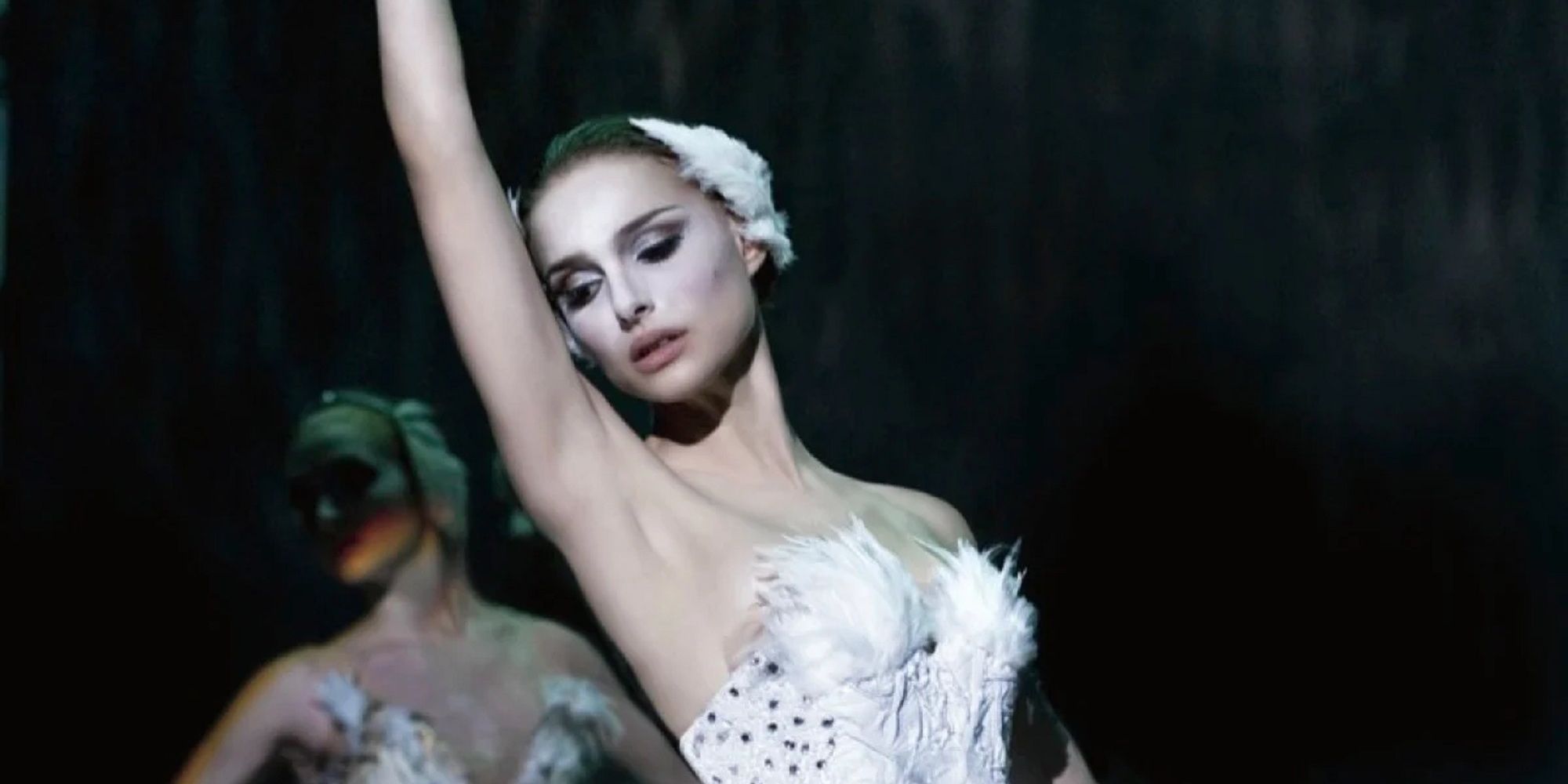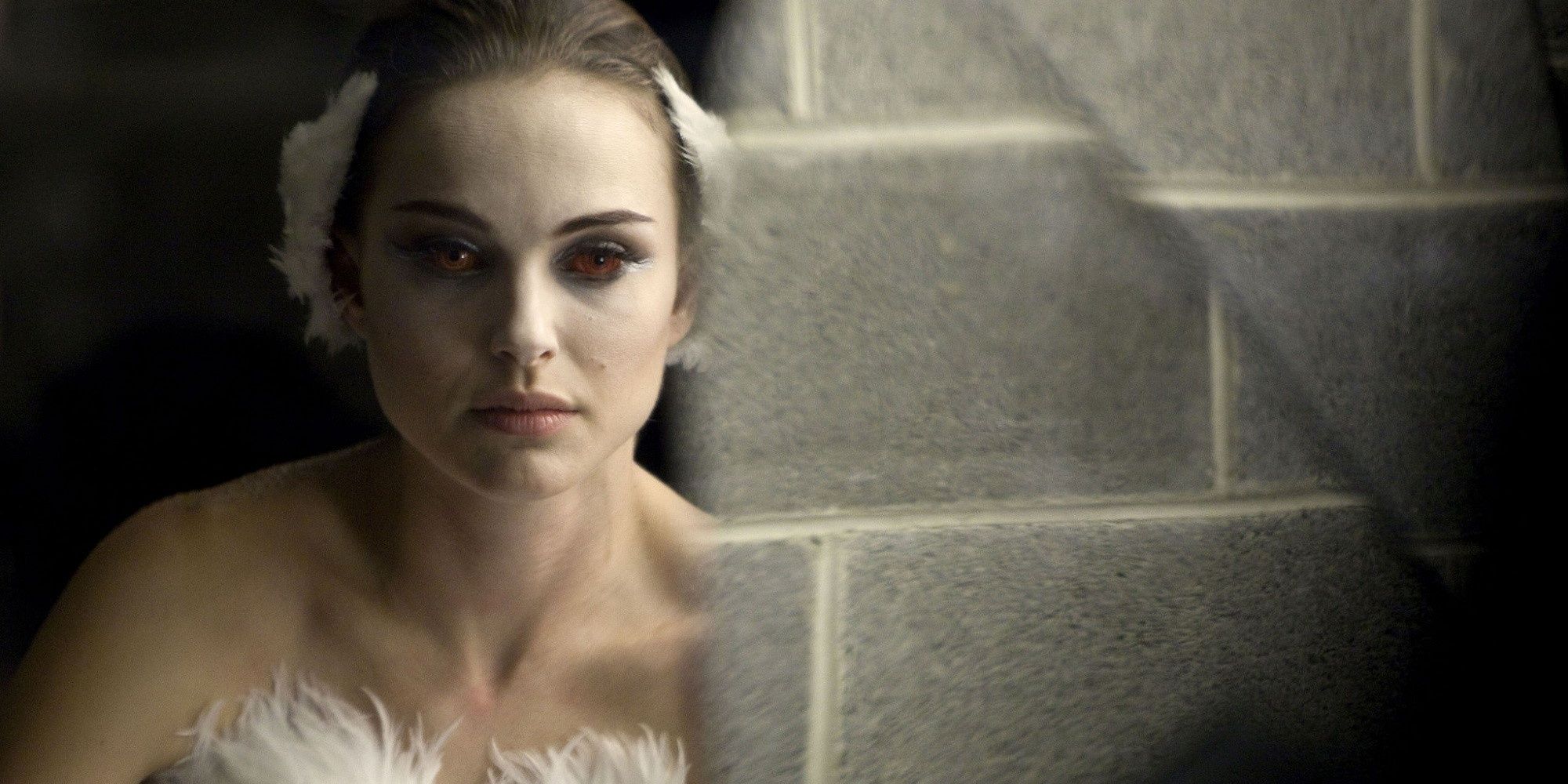The Big Picture
- Black Swan delves into the dark side of striving for perfection in the ballet world.
- The film portrays the intense mental health struggles faced by a ballerina chasing success.
- Nina's descent into madness blurs reality and fantasy while exploring the price of perfection.
Tales of creative people with an unhealthy ambition to be the best in their field is not a new concept. Whether in the magician rivalry of The Prestige, the single-minded determination of a jazz drummer in Whiplash, the commitment of a Hollywood actor in Birdman, or dueling cellists in The Perfection, Hollywood is inundated with stories of obsessive creatives. And with good reason. Stories about the pursuit of perfection provide the canvas for deep character studies while also serving as a cautionary tale about chasing success. With its story of female rivalry, the overpowering desire for artistic excellence, and its effect on mental health, 2010's Black Swan , which has just hit Netflix, is another notable entry in the category. It's also one of the best. Black Swan weaponizes beautiful renditions of ballet performances to deconstruct the link between identity, sexuality, and artistry. As beautiful as it is terrifying, Black Swan utilizes its open-ended conclusion to let viewers make up their own minds about what actually happened to Nina.

Black Swan
Nina is a talented but unstable ballerina on the verge of stardom. Pushed to the breaking point by her artistic director and a seductive rival, Nina's grip on reality slips, plunging her into a waking nightmare.
- Release Date
- December 3, 2010
- Director
- Darren Aronofsky
- Cast
- Natalie Portman , Mila Kunis , Vincent Cassel , Barbara Hershey , Winona Ryder , Benjamin Millepied
- Runtime
- 110
What Is 'Black Swan' About?
The film revolves around Nina Sayers (Natalie Portman), a ballerina in the New York City ballet company who desperately wants both starring roles in the company's opening season performance of Tchaikovsky's Swan Lake. Faced with pressure from herself as well as her overprotective mother (Barbara Hershey), she pushes her body to the brink to achieve her best performance. But when promising newcomer Lily (Mila Kunis) joins the company, Nina is faced with the devastating possibility of being replaced. She trains harder than ever, though her desire for perfection begins to have unforeseen consequences. As Nina becomes obsessive about her performance and pushes her mind to its limits, she is haunted by hallucinations that make her question what is real and what is the product of her fracturing mind.
It’s not the first time that Portman has played an obsessive artist; she also appeared as the traumatized pop star Celeste in Vox Lux and the actress Elizabeth Berry in May December. However, her performance in Black Swan is unique because Nina’s desire to succeed is purely based on her own ambitions. Nina doesn’t see ballet as a means to gain celebrity status, as the art in itself is satisfying. Black Swan examines how Nina is her own greatest enemy as she digs herself in deeper when she tries to achieve perfection.
‘Black Swan’ Is a Dark Psychological Horror Dressed Up in a Tutu
On the surface, Black Swan can seem like a drama about the cutthroat world of ballet. However, to reduce it to such simple terms would be doing the film a great disservice. The psychological horror film is a master class in crafting character-based tension and dread, with each scene building to a crescendo as captivating as it is horrifying. Director Darren Aronofsky isn't afraid to get up close and personal with his messy characters and the result is a fascinating commentary on mental health, sexual repression, and the price of success. Along with a beautiful and haunting score from Clint Mansell and killer performances from leading ladies Portman (who won an Oscar for the role), Hershey, and Kunis, the film manages to deliver a tightly paced rollercoaster ride guaranteed to leave you breathless after it fades to white.
Black Swan begins with a premise that's simple enough, but it's not long before its narrative twists and turns, daring viewers to follow through the distorted path it travels. As the plot grows darker and Nina begins to question what is real and what is imagined, so does the audience. So what really happened at the end of Black Swan? Let's take a look.
Nina's Obsession Starts to Manifest in Body Horror
The night before she is set to perform, Nina becomes convinced that Lily is going to take her place. Her paranoia and mental strain cause her to hallucinate that she's physically turning into the role of Odile, the Black Swan, complete with red eyes and black feathers protruding from bird-like skin. But her confidence and passion for the roles of Odile and Odette, the White Swan, causes the play's artistic director Thomas (Vincent Cassel) to finally award both roles to her. After playing Odette, Nina begins to lose her grip on reality when she goes backstage and finds Lily prepping to go on stage as Odile. Horrified and desperate to keep the coveted role to herself, Nina confronts Lily, and they're involved in a violent altercation in which Nina stabs Lily with a shard of a broken mirror, killing her.
It’s hardly the first time that Aronofsky has utilized body horror to reach emotional truths. The traumatizing ending of his 2017 film mother! lamented on the relationship between an artist and his muse through the lens of a home invasion thriller; his most recent film The Whale examined a self-destructive man’s search for fulfillment. While these films could be accused of being emotionally manipulative, Black Swan succeeds because of Nina’s relatability. The pureness of Nina’s intentions makes it even more shocking when she reveals the darker “black swan” aspect of her personality. The film reveals that even good people have a dark side.
How Does 'Black Swan' End?
Nina hides Lily's body and readies herself to go back on stage, but she is shocked and confused to find Lily standing in the doorway — alive. After all, the remnants of the broken mirror are still present, but Lily isn't injured. It's here that we see that the glass shard from their fight isn't protruding from Lily like we initially saw through Nina's point of view. It's in Nina. It turns out that Nina hallucinated the fight with (and subsequent murder of) Lily, and actually stabbed herself while in the throes of a psychotic episode. But this doesn't stop Nina from performing the role she's worked so hard to attain. Bleeding, she returns to the stage to perform the last act of the show.
The intensity of the strenuous performance rises and rises until the ballet's ending scene where Odette throws herself off a cliff. As Nina is falling through the air towards the mattress waiting below, the audience erupts into applause as Thomas and her fellow dancers crowd around her to congratulate her on a phenomenal performance — right as they see the blood blooming from the wound in her stomach. Thomas immediately calls for help, but Nina isn't in distress. "I felt it," she says, wide-eyed. "Perfect. It was perfect." The screen then fades to white, leaving it uncertain if Nina succumbed to her wounds or not.

Natalie Portman & Julianne Moore Reveal the Role They Were Most Nervous to Do
The stars of Todd Haynes’ 'May December' also share what might surprise people to learn about acting in Hollywood.It's a bold ending, for sure. Is Nina going to pull through, or are we witnessing her dying moments? On one hand, the fade to white could symbolize Nina walking towards the light as she dies from her stab wound; or, perhaps it's Aronofsky's way of showing us that Nina has now so completely disappeared into the role of the White Swan that there's no turning back. That Nina and the White Swan have become permanently fused together, unable to be separated. It doesn't seem to matter much to Nina either way because she got exactly what she wanted — achieving the ballet perfection that she so longed and trained for. Black Swan is unique in its feminist perspective. Although Nina has convinced herself that Thomas is “brilliant,” it’s evident that his demanding nature crosses the line into abuse. Thomas objectifies his dancers and only views them as a means to achieve his art; he only begins to notice Nina when she unleashes the dark side of her personality. While Nina's main enemy is herself, Cassel's Thomas is a reminder of the patriarchal pressures thrust on women.
What Is the Meaning Behind 'Black Swan's Ending?
Whichever side you fall on, the ending raises plenty of other questions. After all, with Nina as an incredibly unreliable narrator, we have to wonder what other scenes, encounters, and conversations in the film were actually her hallucinations. For example, just how much of Nina's relationship with Lily was a product of her psychosis? Judging by Lily's genuine congratulation of Nina at the end of the film, it's probably safe to say that Lily had no idea about Nina's obsession with her. The adversarial relationship seems to be decidedly one-sided. But regardless of the women's friendship or rivalry, the real antagonist of the film isn't Nina or Lily; it's mental illness.
Black Swan takes great pains to show the mental and physical toll that Nina's single-minded pursuit of ballet perfection takes on her. From refusing to eat the celebration cake that her mother buys her and purging to maintain her ballerina weight, we're a witness to her food guilt as well as her bulimic tendencies. Combined with her performance anxiety, stress from living with an overprotective mother, and hints at self-harm, her mental health struggles have a large hand in contributing to Nina's psychosis that she experiences throughout the movie. Nina makes some questionable choices that she alone is responsible for, but she's also a victim, a prisoner of the ferocious cycle of mental illness.
While perfection can mean different things to different people, Nina's arc — and the film as a whole — shows that the pursuit of perfection doesn't come without consequences. After all, achieving excellence can be gratifying, but chasing it can be deadly.
Black Swan is available to stream on Max in the U.S.




